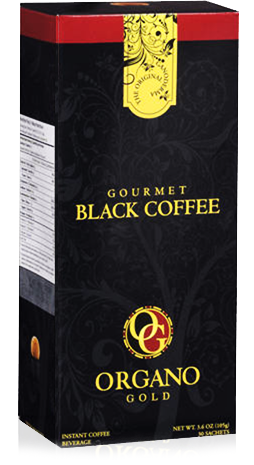Organogold Black Coffee
EditChoosing Coffee to Brew at Home
-
Choose organic coffee brands. Organic coffee beans have been grown without the use of pesticides and synthetic fertilizers. While scientists haven’t established whether using pesticides to grow coffee leads to pesticide residues on the beans themselves, pesticides are harmful to the planet and to farm workers. Pesticides increase polluted water runoff, and may lead to symptoms like headaches, dizziness, and difficulty breathing in farm workers. Organic brands may be a little pricey, but they are the healthiest choice for the planet, and probably for your own health.[1]
- Some studies have shown small increases in nutrients in organic produce compared to conventionally grown produce. This means organic coffee may actually be healthier for you.[2]
- Check for the USDA organic label on your coffee. Some brands may claim to be organic, but you cannot be sure they adhere to USDA organic standards unless their product bears the label.[3]
-
Opt for decaf coffee if you have certain health conditions. You should stick to decaf coffee if you are pregnant. Studies suggest that caffeine may stunt fetal growth and increase risk of stillbirth or miscarriage.[4] Caffeine may also complicate regulation of hypertension and diabetes, so decaf is probably the best option if you have either of these conditions.[5]
- If you are pregnant, one or two cups of coffee a day should still be safe.
- At the same time, caffeine has been linked to health benefits. Caffeinated coffee, but not decaf, has been associated with lower risk of Alzheimer's, Parkinson's, and dementia.[6]
- Talk to your doctor to see if it is safe for you to drink coffee or other caffeinated drinks.
-
-
-
Make other lifestyle changes to reap maximum health benefits. While evidence shows that drinking up to 6 cups of coffee a day does not have adverse health effects for most populations, the health benefits of coffee are less clear. If you're trying to improve your health, you should turn your attention to other lifestyle factors. Focus on exercising more and eating a diet high in fruits and veggies.[10]
- Keep in mind that everybody reacts differently to certain levels of coffee. While most people may not be harmed by 6 cups of coffee, other people may develop tachycardia and irregular heart rates. If you feel your heart rate increasing, stop drinking coffee for the day.
- Coffee may be protective against certain cancers, Parkinson’s, type II diabetes, and cardiovascular disease, but more research is needed.
EditPreparing Your Coffee at Home
-
-
-
-
-
Skip the sugar. Sugar sweetened beverages have been associated with significant health consequences, including increased risk of cardiovascular disease, and obesity.[15]Black, sugar-free coffee is best, but if you need your coffee sweetened, you should use small amounts of sugar, honey, or artificial sweetener.
- A teaspoon of sugar is only 40 calories. If you have an otherwise healthy diet, drinking sugar with your coffee shouldn't be a problem.
- Data suggests artificial sweeteners may have health consequences of their own. If you want to sweeten your coffee, it may be better to use a small amount of sugar or honey rather than an artificial sweetener.[16]
-
EditChoosing Coffee at a Coffeehouse
-
-
-
-
Avoid specialty drinks. Avoid specialty drinks, like Frappuccinos, which tend to be high in sugar and fat. Instead, go for a plain coffee.[20]
- If you decide to go for a specialty coffee drink, order the smallest size.
- Many coffeehouses list the calories in each of their drinks. If you really want a specialty drink but aren’t sure which is the healthiest, pick the drink with the lowest calories--it is probably relatively low in sugar and fat.


















No comments:
Post a Comment